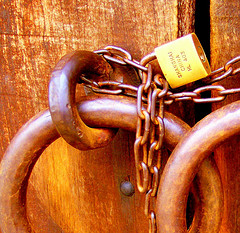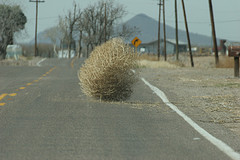As a sports fan, I’m personally not particularly interested in basketball — an opinion not widely shared in the US. I feel your pain though basketball fans! I never want to see any league go into a lockout and deprive its millions of fans their season. My sport of hockey did not resolve contract arguments in 2004-2005, leaving us with nothing to watch as players flew away to Europe; and it was awful. But I’m not here to discuss who is at fault for the current NBA lockout, but whom its standoff is affecting.
Businesses In and Around Arenas
Think of any sports stadium you’ve passed by or visited in your lifetime. Whether it’s a football or baseball stadium, a basketball or hockey arena, tennis courts or golf courses, there are many businesses surrounding the complex.
Sports bars and restaurants are littered with advertisements designed around the games taking place nearby. “Come grab a beer celebrating the Red Sox win after the game” or “Can’t find tickets? Come on in and watch the game on our huge HD TVs with food and beverage and cheer the Packers on” are standard messages you see right nearby the stadiums themselves.
Taxicabs make a large amount of revenue in cities such as New York or Los Angeles where it’s difficult to navigate, or you don’t want to pay $40 for event parking. With seating capacity of 19,000+ at Madison Square Garden and 18,000+ at the Staples Center, you better believe a big chunk of arrivals are coming from cabs or subways. All of these businesses are directly affected by 40+ home games a year being wiped away.
Sponsors of the Athletes
It’s silly to say that enormous brands like Nike or Adidas or Under Armour will see a huge cut in revenue as they can easily survive off their other sports and products. However in a time where you still need to sell your basketball product, what do you do when your star clients aren’t able to boast your logo on the highest stage of the sport? Each game is a 2-hour advertisement with athletes running around with the Swoosh or 3 bar symbols emblazoned on their sneakers, high socks, headbands, armbands, protective arm sleeves, etc.
Nike has already started a major campaign in college basketball while the NBA is at a standstill. Nike had enormous banners made for the top NCAA teams in their colors, with the school name followed by “______ BASKETBALL NEVER STOPS” and the famous Swoosh. Depending on how you look at it, the message could be an addition to their “Always On” for training campaign, or a quick jab at the NBA reminding them that the college kids are still playing hard for the love of the game.
The Fans
At the end of the day the biggest driving force behind salaries and revenues for the players and teams are the fans who buy tickets for games and apparel for the street, and supply viewership on TV and engagement on social media (more so marketing, less revenue). While a lockout is in place, there are no games, no tickets being bought, no numbers for TV ratings, no desire to buy a new jersey or tee shirt, or reason to tweet or comment on Facebook about your team, except to most likely complain about its absence.
With nothing actually happening, there’s nothing for organizations to market. The marketing team takes a huge hit in their department. Fans grow impatient, making it harder to generate positive feedback. Most people are left to just wait for negotiations to break, and hear the news that everyone can get back to work.
I hope for the league’s sake, the fans’ sakes, and for sports in general that the NBA is able to wrap this up and salvage even half of the 2011-2012 season as a lot of revenue and positive public relations are on the line to lose. Speaking from experience as a hockey fan during the 2004-2005 NHL lockout, it’s something that just isn’t worth the loss.
For further reading, as well as some numbers, visit:
Forbes: Six Thoughts Regarding The Economic and Marketing Realities of the NBA Lockout
Sports Marketing Tracker: NBA Teams Adapting Facebook Marketing Strategies During Lockout
PBS: NBA Lockout Economic Impact on Cities and Lost Jobs





